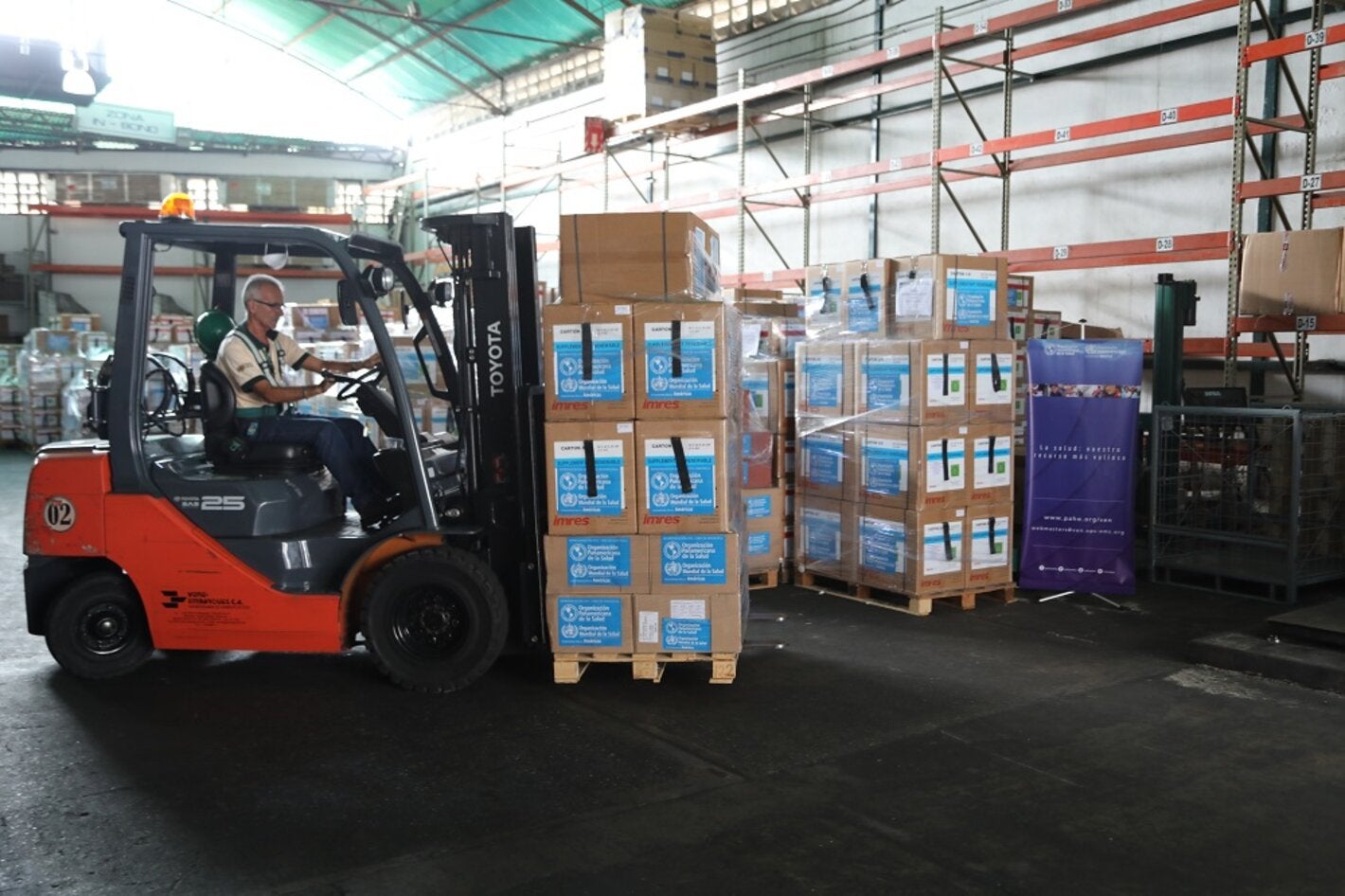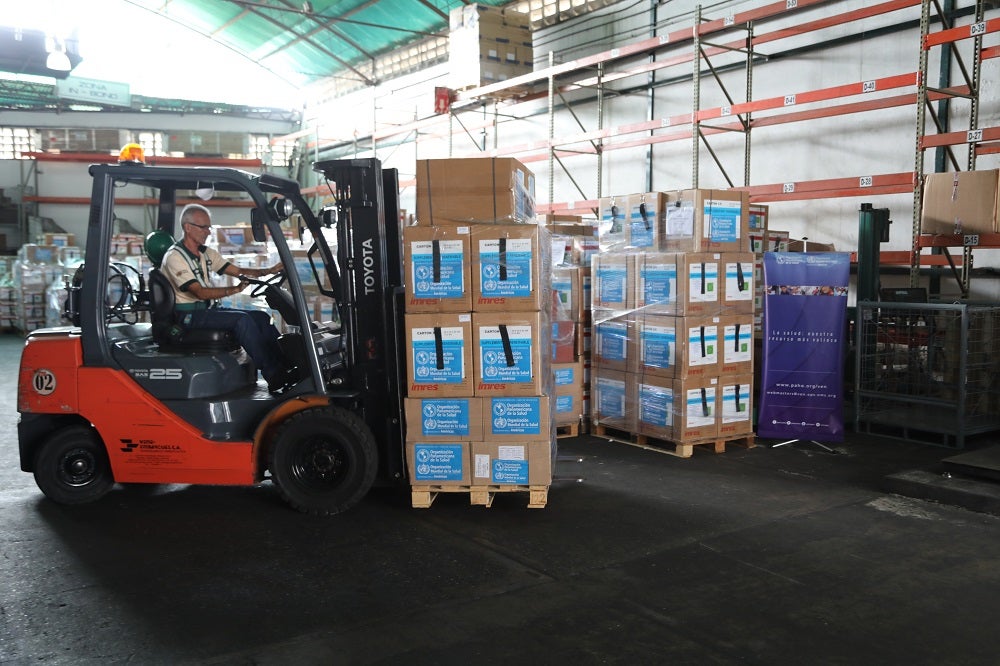
Caracas, 1 November, 2018 (PAHO / WHO)- The Pan American Health Organization, the regional office of the Americas of the World Health Organization (PAHO / WHO), has organized the delivery of around 22 tons of medicines and supplies for Venezuela. It is expected that this will facilitate the treatment of approximately 500 thousand patients in the areas of emergency medicine, intensive care, surgery and general medicine.
Thanks to the recent delivery in October, nearly 50 tons of medicines and supplies have now been provided to Venezuela by PAHO/WHO so far in 2018. This is part of a sustained effort to improve health care for the population.

The medicines and supplies were delivered on 31 October 2018, as part of the Safe Hospitals Initiative that PAHO/WHO and the Ministry of Popular Power for Health have been supporting for the past two years. This initiative includes 18 priority hospitals across 14 states.
“In order to manage supplies in hospitals, 78 pharmacy and warehouse workers were trained in the SUMA logistics support system, which allows medicines to be monitored from the moment they are received until they are given out to each of the beneficiaries. This enables both health authorities and PAHO/WHO to plan according to demand, and to adjust the purchase and distribution strategy if required,” explained José Moya, PAHO representative in Venezuela.
More than 3,000 boxes that made up the delivery were distributed in 18 hospitals, 13 Comprehensive Community Health Areas, eight health institutions, among others, in the states of Amazonas, Anzoátegui, Aragua, Apure, Bolívar, Delta Amacuro, Capital District, Carabobo, Lara, Merida, Monagas, Sucre, Tachira and Zulia.
PAHO/WHO continues to strengthen technical cooperation with the country’s health authorities. Specific support is provided to improve the management of health systems, the prevention and control of communicable and noncommunicable diseases, as well as in the purchase of medicines, vaccines, laboratory reagents and other health supplies.



